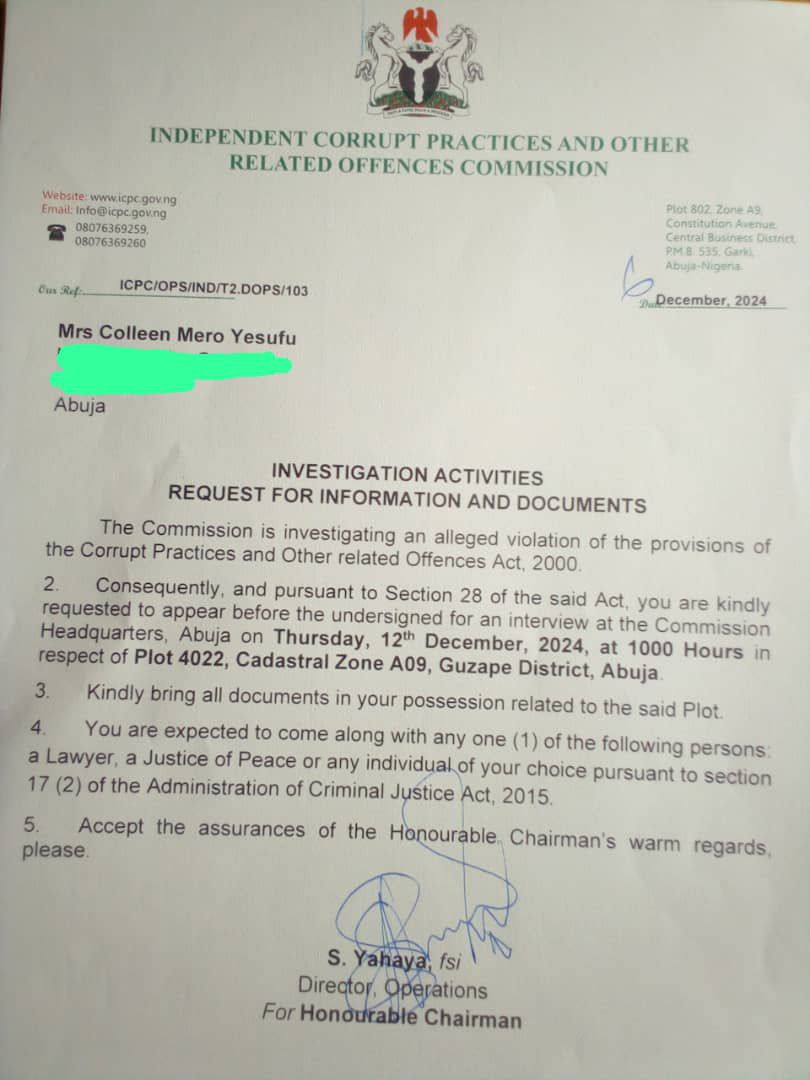High-Profile Land Fraud Case Sparks Debate on Regulatory Gaps in Nigeria’s Real Estate Sector
The unfolding legal saga involving Rebecca Omokamo Godwin Isaac, also known as Hajia Bilikisu Ishaqu Aliyu, and her firm, Homadil Realty Limited, has cast a harsh spotlight on systemic failures in Nigeria’s real estate regulatory framework.

While the Economic and Financial Crimes Commission (EFCC) and the Independent Corrupt Practices and Other Related Offences Commission (ICPC) investigate allegations of fraud, forgery, and land grabbing linked to Omokamo, industry experts are questioning how such high-stakes disputes continue to plague the property sector despite existing laws.
The controversy, which centers on Plot 4022 in Guzape and other properties allegedly sold using forged documents, has reignited calls for reforms in land administration. Critics argue that gaps in oversight allow fraudulent actors to exploit weaknesses in title registration and property verification processes.

Human rights lawyer Maxwell Opara, representing the petitioners, described the case as a “wake-up call” for authorities to overhaul property registration systems to curb abuse.
“The fact that the same property was sold to multiple buyers using forged documents highlights a fundamental failure in our verification processes,” Opara said. “It’s time for policymakers to introduce stricter oversight and accountability measures.”
Several victims who allegedly purchased properties from Mrs. Omokamo’s firm have also come forward, sharing heartbreaking stories of financial ruin. One buyer, who invested millions in a Katampe District plot, recounted how his dreams of homeownership were shattered after discovering the documents were fake.
“The system failed us,” he lamented. “We trusted the process but ended up being scammed.”
The case has also become a litmus test for Nigeria’s anti-corruption agencies.
The EFCC and ICPC face mounting pressure to deliver swift justice amid accusations that wealthy and connected individuals often evade accountability.
Mrs. Omokamo’s open letter to President Bola Tinubu, accusing the EFCC of harassment, has further fueled debates about the agency’s approach and whether its actions could be misinterpreted as political intimidation.
Legal analysts say this case could push reforms aimed at digitizing and centralizing property records to prevent fraud.
Proposals include mandatory title verification systems, enhanced penalties for forgeries, and tighter monitoring of real estate agents and developers.
“This case must not end with prosecution alone,” said Professor Jide Olanrewaju, a property law expert at the University of Abuja. “We need preventive measures to ensure such incidents don’t reoccur.”
As the courts deliberate, stakeholders are calling for broader conversations on restoring public trust in Nigeria’s real estate sector. For now, the spotlight remains firmly on Mrs. Omokamo and her firm, as the EFCC and ICPC pursue their investigations.
Observers say the outcome could set a precedent for addressing real estate fraud and protecting buyers from exploitation in a sector worth billions of naira.

